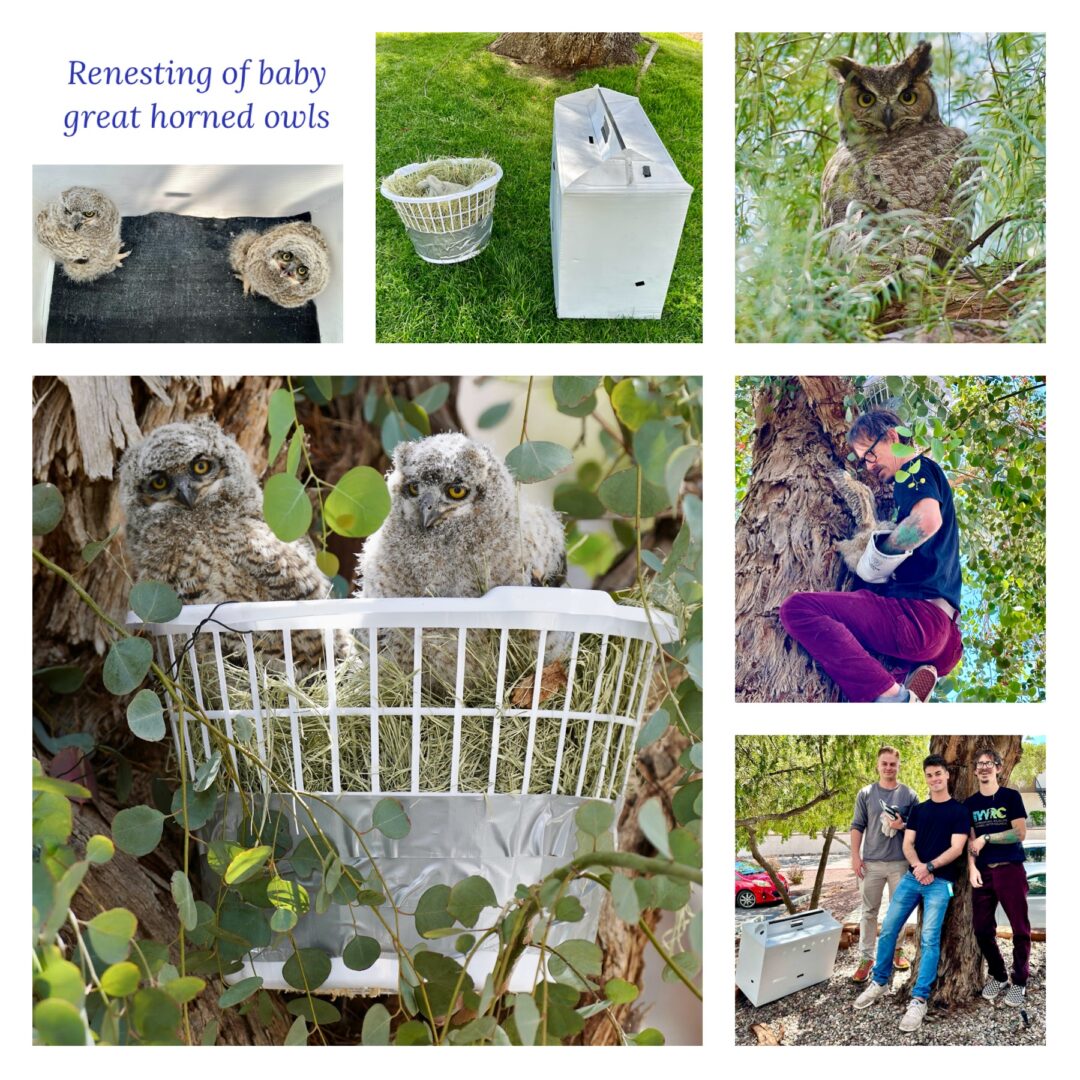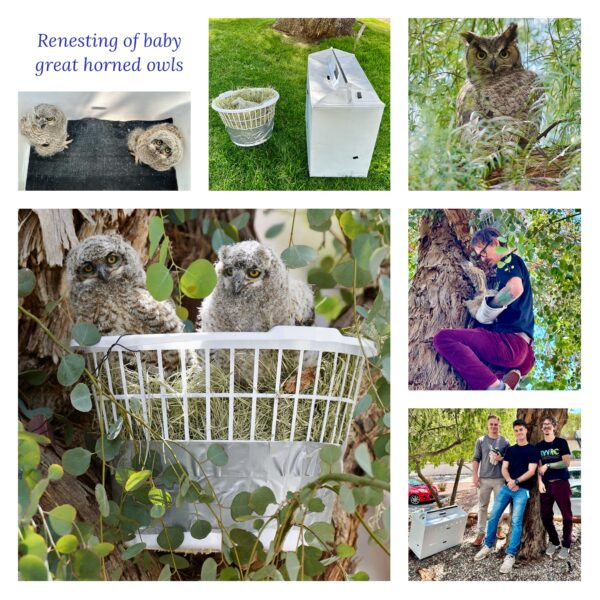
Renesting of Great Horned Owlets
A team of wildlife care specialists from Tucson Wildlife Center recently renested two healthy great horned owl babies (owlets). Caring residents had brought them to the Center after finding them on the ground. Luckily, both were uninjured and TWC quickly developed a plan to renest them.
Guided by the owlets’ finders, the team searched the property where the babies had been discovered but could not locate the nest. They did spot one of the parents sitting in a tree nearby. After picking a big tree in a safe area within sight of the parents, the team carefully attached a laundry basket filled with nesting material to the branches. Once both owlets were safely tucked into the basket, the team backed away.
Great horned owl parents have strong parental instincts and will attend to their offspring, even if they have been displaced from the nest and renested in a different tree nearby. These owlets are now at the “branchling” stage where they are starting to explore their surroundings and are venturing out of the nest to perch on nearby branches. Often though, the little ones jump to the ground, walking around for a week while learning to fly. Parents will continue to protect and feed them on the ground. This property is in a busy high-traffic area, so one of our wildlife care specialists, Justin, has been going back daily to check on them—placing them back in the basket or on a high branch when he finds them on the ground. Each time, one or both parents have been sitting in the higher branches of the same tree keeping watch.
Baby owls, like many other young birds, may accidentally fall from their nest due to illness, nest instability, storms, or while attempting to exercise their wings. For guidance on what to do if you find a baby bird, hawk or owl, visit our website at https://tucsonwildlife.com/wp-content/uploads/i-found-a-baby-bird-or-mammal-print-out-2020.pdf and call us for advice on next steps.
If you would like to help patients like these owlets, please click the donate button below.
Another way you can contribute is to visit our “wish list” on Amazon by clicking on the Amazon Wish List button below. We appreciate it, as will all the wild animals in our care!


